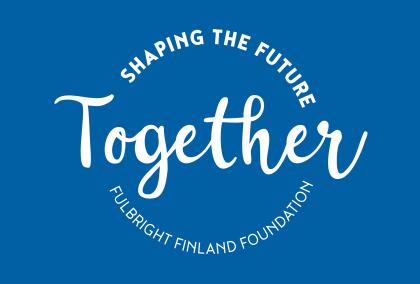New Perspectives on Science from New Experiences in Life
By Benjamin Lear
Published on June 22, 2020
“Why sabbatical in a different country?” Two years ago, this was the question at the forefront of my mind, as I considered where I might spend a year learning computational chemistry. At the time, there seemed several good reasons to ask this question. I was running a group of 11 graduate students and 5 undergraduates. All of these students needed to think through projects, write papers, and to navigate the vagaries of student life. These students had joined my laboratory with the expectation that I would help them with these processes. Would I be abandoning them by heading off to some far-away country for a year? Couldn’t I learn something new back home, where I would be more available to my students? Isn’t an advantage of computational science that it can be done anywhere? What was the benefit of moving across the globe to learn this new area of science?
It is not clear that I reached a satisfactory answer to any of these questions as my wife and I boarded a plane for Finland on June 16th, 2019. In the end, however, a combination of factors led me to choose to go abroad. Modern tools, such as Zoom, promised regular real-time contact with my students. I also felt that the learning of new things benefits from being in new places. After all, we encourage our undergraduates to attend graduate schools at different institutions, for this very reason. If I were to learn a foreign sub-discipline of chemistry, shouldn’t it be in a correspondingly foreign country? And I would be lying if I didn’t admit that the call to adventure played a large part. Indeed, I suspect that all other reasons were just post-hoc rationalizations I invented to justify heading out and seeing more of the world!
But, as it turns out, working in a foreign land did provide new insights into science. Perhaps more useful and unexpected, it provided insight into who I am as a scientist.
The first of these results was expected. Indeed, the professional justification for my sabbatical was to learn new skills. As an experimental chemist, I had been trained to design and carry out experiments that required delicate manipulation of the physical world. For instance, the handling of chemicals that must be kept away from oxygen, lest they explode. My skills in these areas had led to my current position as an Associate Professor and to the formation of a group comprising motivated students who also wanted to learn these skills.
What my training did not include was knowledge on how to use the many powerful computer-based predictive tools that modern science has created. At present, it is possible to simulate the action of hundreds of thousands of atoms, gaining insight into how an experiment might proceed. With these tools, I could avoid carrying out of experiments that would likely yield ambiguous results, directing my group’s efforts to more fertile scientific ground. There is an old saying in science concerning the importance of thinking through an experiment: “an afternoon in the library can save a week in the lab.” An updated addition might be: “a month on a computer can save a year in the lab.” This is the promise that brought me to seek computational skills and, ultimately, to Finland. And this is a skillset that I have largely gained here.
However, beyond gaining insight into how I do science, I also gained unexpected insight into why I do science. To frame this insight, perhaps it is best to return to the start of my fellowship period in Finland.
When I arrived in Finland, everything was new. The language had an unfamiliar lilt to it. The forest had strange (and edible!) undergrowth. People took personal space to a level never seen in the United States. Every time I left my house, I was on an adventure. A new forest path would bring me to a new lake that I could swim in. An unstructured walk might bring me to a new market square, with booths selling whole fried fish, entirely new to me. Each day I woke up excited to see what new experience awaited me and what new knowledge I would gain. Eventually, it occurred to me that this sense of excitement and discovery is what motivates me to do science.
There is one moment where this insight crystalized. It happened as my wife and I stepped off the train during our first visit to Turku. We did not yet know what the city had to offer or what we might find, but we were confident that we would find something interesting and learn something new and that the trip would be worth it for that outcome. At that moment, I realized this was the exact feeling I had when planning an experiment or working up data. When doing science, I often encounter data that doesn’t make sense at first. I find myself lost in a confusing maze of data, where one set of behaviors seem unrelated to others. Over the years, I have learned that, if I work at it, eventually an understanding of the data coalesces. I gain an understanding of how one bit of data connects to another and the shortest conceptual distance between two areas of data. The feeling that accompanies the emergence of understanding data is the same as when I round a corner in a new city and realize that I know where I am.
The realization that the sense of exploration drives me to perform science has given me a much more focused perspective. I understand that joy can be found by leaping into the unknown and trusting my skills to sort out the mess. I realize I don’t need access to a lab or a particular computer program to experience this joy. All I need is access to things that I don’t understand. Fortunately for me, these exist in overwhelming abundance.
This was my new frame of mind as the global COVID-19 pandemic emerged. If my love of science was tied to a particular place or access to a particular resource, then being stuck at home for months could feel stifling. But the unknown is always near at hand! And so, these months at home have been more an opportunity to dig into new questions, than an obstacle to my science.
To be sure, this positive outlook on the pandemic is colored by the fact that my wife and I have been fortunate. We and our families have weathered the pandemic untouched, as of yet. At no point did we feel unsafe in Finland, and so we know that we had a privileged experience. But this does not negate the insight I gained, or the peace it has brought me in these uncertain times.
In the end, perhaps it was not necessary to leave my home country to learn computational chemistry. But the process of stripping off the familiar and placing myself in a foreign land might just have made it that much easier to gain a new perspective of the world---and myself.


